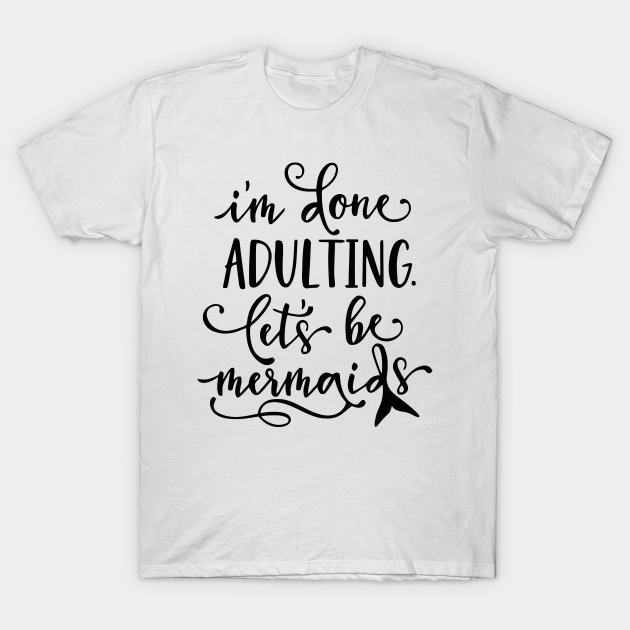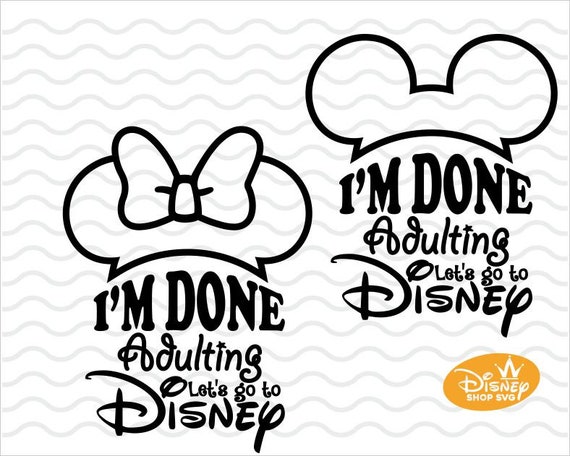
The reality is that you can’t just push them aside and you need to take some time to process everything and then you have the ability to say “I’m done” and genuinely mean it. You only push them aside for a little while to feel like you can move on with your life. Think of our emotions as if they were the food on the plate. Then, we would get the disappointing news that we weren’t and our quick moment of happiness and joy is soon back into sadness. We would proudly declare “I’m done,” thinking that if we left a little bit on the plate, the pain and suffering would be over. We would feel so angry, upset, and frustrated that we would do a poor job at finishing our meal. Think back to when we were kids and our parents would force us to eat a meal we didn’t want to eat. The reality is that it doesn’t always help. False hope prevents us from being truly “done.” We only want to be done because we think if we are we will feel better. We might say those words, but deep down we really hope to hear from them again or have a second chance with them.

There’s no way in hell we can say “I’m done” when our emotions are all twisted up inside of us. When saying “I’m done” while referring to a relationship of any kind, we say it while we are stuck in an emotional rut we can’t seem to pull ourselves out of. But other times? We don’t always mean it. Most of the time when we say those two words it’s only proven to be true when it’s an accomplishment to be proud or excited about, or after something that was moving by painfully slow and being referred to as a celebration of finally finishing. They could be referring to completing a task that took a long time to work on, finishing a long day of work, or when the person you like is causing you pain. An ombudsman is an independent person who's been appointed to look into complaints about organisations.“I’m done” is a common phrase said by people almost every single day. If you're not happy with the way the council handles your complaint, you can take it to the local government and social care ombudsman.
Im done adulting how to#
You should also be told about how to complain at your assessment. Your council should have a formal complaints procedure on its website. If you disagree with the results of your carer's assessment or how it was done, you can complain.įirst complain to your local council. How to complain about a carer's assessment
Im done adulting free#
If you're told you don't qualify for help and support, your council should give you free advice about where you can get help in your community. If you don't qualify for help from your council You might also qualify for benefits for carers that can help with costs. This will be arranged for you after the carer's assessment. You might need a financial assessment (means test) first. Your council might be able to help with costs. If you qualify for help from the council, they'll write a care and support plan with you that sets out how they can help. The local council will tell you the results of the assessment. Contact's free helpline for families with disabled children on 08.your local council's adult social services department ( find local authority adult social care services).If you want to talk to someone about carer's assessments, call:

They can help you fill in forms and sit with you in meetings and assessments. Advocates are people who speak up on your behalf. This could be the person you care for, a friend or relative. It can help if you have someone with you during the assessment. The Which? page about how to get a carer's assessment includes a checklist of questions to help you prepare, regardless of your age. This will help make sure you get all the help and support you need. Give as much detail as you can about the impact caring for someone is having on your life. the name, address, date of birth and NHS number of the person you care for (if you have it).contact details of anyone who's coming to the assessment with you.your GP's name, address and phone number.How to prepare for your carer's assessment Some councils can do it over the phone or online.Īssessments usually last at least an hour. This includes how it affects your physical and mental health, work, free time and relationships. Someone from the council, or an organisation the council works with, will ask how you're coping with caring. watching over someone if they can't be left aloneĪll of these count as being a carer.

sitting with someone to keep them company.getting out and about and travelling to doctors' appointments.You're a carer if you're looking after someone regularly because they're ill, they're an older person or they're disabled – including family members. Find your local adult social care services (England only) How to tell if you're a carer


 0 kommentar(er)
0 kommentar(er)
